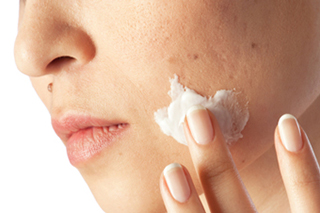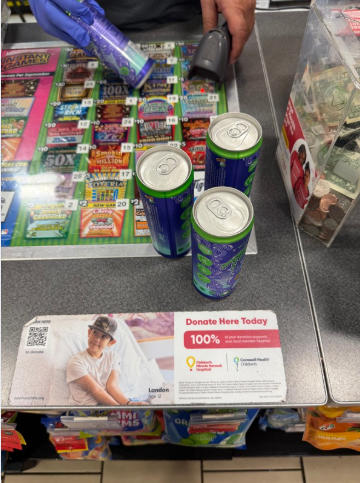Students discuss skin care problems, solutions, and treatments

March 29, 2016
Students of Rochester High School are preparing to head to warm destinations for spring break and catch the sun’s rays. They’ll be lined on towels coated in tanning oil hoping to soak up as much sun as they can before coming back to the unpredictable Michigan weather.
For teens, skin care is not always on the forefront of their minds, but with many of the skin problems that teens face, such as sun exposure, not getting the proper care can mean long-term damage that can never be erased.
Sun
One of the most prevalent issues pertaining to skin today is sun exposure. Junior Izzy Cooper explains what she does in order to protect her skin from the sun.
“I do regularly use sunscreen, because if I don’t, then I will get burnt, which can eventually lead to skin cancer,” Cooper said.
In contrast, junior Santina Pattah explains why she is not concerned about the effects the sun may have on her skin.
“I am not really worried about sun exposure, because frankly, I like to go out in the summer and tan. I do use tanning products and sprays with SPF in them though.”
Cooper explains her thoughts on teen’s concerns with sun exposure.
“In my opinion, I don’t think that teens care about the consequences, so they don’t use sunscreen as often as they should,” Cooper said. “Also, since skin cancer can be more easily treated than other cancers, teens don’t care as much because they know that it can be treated.”
According to the Mayo Clinic, not only can sun exposure lead to skin cancer, the most extreme consequence of sun exposure, but it can also lead to long-term damage such as dark spots and accelerated aging, which causes skin to sag and wrinkle.
Because teens are young, they often don’t think about how what they do now can affect them later. Emily Waack, a certified medical assistant at Oakland Hills Dermatology, offers teens advice.
“I would definitely suggest that teens use sunscreen,” Ms. Waack said. “I wish that I would have applied sunscreen more often younger. Luckily I’m still young and can still prevent and long lasting effects that the sun can have.”
Acne
While exposure to the sun is one of the most talked about skin issues, acne is another problem that not only teens face, but adults as well.
According to the American Academy of Dermatology, acne is the most common skin condition in the United States affecting around 50 million people per year. Not only can acne affect one’s physical appearance, it can also affect his or her mental condition.
Since acne often leaves permanent scarring, many who have scarring or even a bad case of acne, have poor self image which can lead to cases of anxiety and depression. That is why it is important to see a specialist or get proper treatment for one’s acne before it becomes a real problem, according to Ms. Waack.
Ms. Waack offers a way to help prevent future scarring.
“I would advise teens who have acne to not pick at it,” Ms. Waack said. “The more you pick at it the more scarring there will be in the future.”
One of the best ways to take proper care of acne is to meet with a dermatologist. Ms. Waack explains some of the treatments that Oakland Hills Dermatology offers to those with acne.
“The most extreme treatment for teenagers over the age of 16 is Accutane, which is a government regulated medication,” Ms. Waack said. “If teens are not all for the effects that happen with Accutane, we then put them on antibiotic retinols and medicated washes.”
Skin Regimens
Because everyone has a different skin type and each person reacts differently to different treatments, many create their own regimens for treating any problems they might have. Cooper explains the regimen she found worked best for her.
“I use a facewash called CeraVe, which is a hydrating cleanser,” Cooper said. “I use it to wash my face every morning and night. In the morning I use a prescription medicine cream from the dermatologist, and at night, I use Adapalene cream. I apply just a little bit around the parts of my face that are the most sensitive and where I break out.”
Pattah describes what she found to personally work best for her skin.
“I cleanse my face twice daily and moisturize my face immediately after cleansing it,” Pattah said. “My cleanser is Cetaphil and my moisturizer is thirst relief from Clinique. My exfoliator is from Clinique as well. I also use a face brush to really get in my pores and to clean them out. This helps to make my face really smooth and clear.”
Though many have a personal skin care regimen that fits their skin best, there are ways to universally take care of one’s skin no matter what skin type.
As stated by the Mayo Clinic, five ways to keep skin healthy are to protect yourself from the sun, abstain from smoking, treat skin in a gentle manner, eat a healthy diet, and to manage stress.
Ms. Waack agrees, while also adding the ways she believes to help maintain healthy skin.
“[The keys to maintaining healthy skin are], drinking lots of water, not smoking cigarettes, moisturizing, using sunscreen and using oil free makeup products,” Ms. Waack said.






